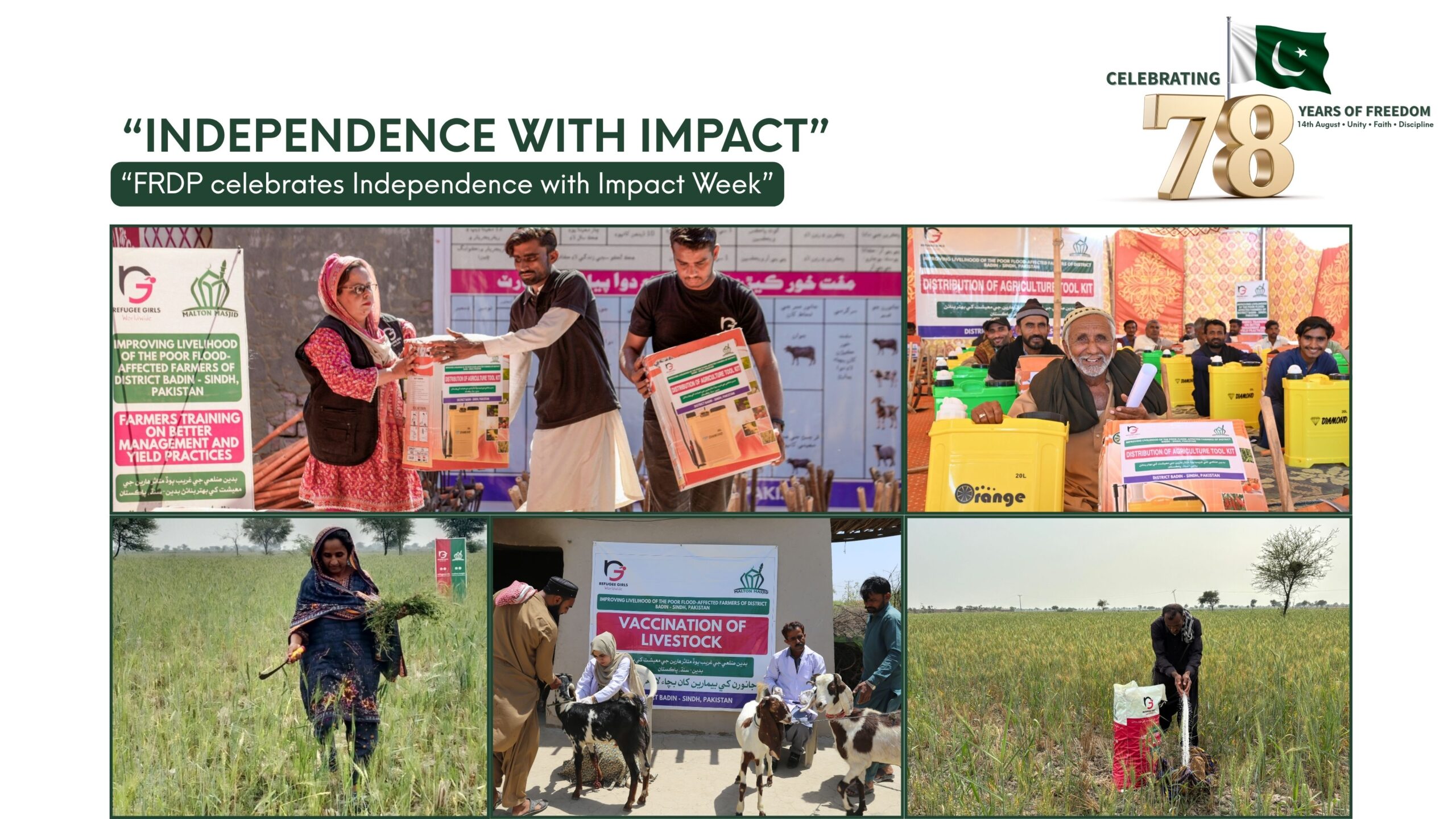Women Farmers From Tando Bago Of Badin Were Finally Given What Was Theirs To Begin With

There is a kind of exhaustion that settles into the body when everything you do is borrowed. Borrowed time, borrowed land, borrowed tools, borrowed permission. Before the livelihood support for flood-affected communities in the District Badin, that was the condition under which most farmers in these villages survived. These days were shaped not by the soil or season but by the availability of someone else’s plough, someone’s seed, someone else’s mood. Work began not with will but with waiting. After the floods, even that precarious arrangement disintegrated. Nothing was left to wait for. No one had anything to lend. The tools rusted in river mud, the seed rotted in wet socks, and the silence that followed was not of rest but of quiet resignation. People sat in the courtyards made up of thorny twigs, watching time pass, watching land lie dormant. It wasn’t that they didn’t know how to farm; it was that farming no longer belonged to them.
What this project, jointly supported by Refugee Girls Worldwide and FRDP, gave wasn’t only tools or training. It restored something else, something less tangible and more vital. It gave people back the authority to begin, the courage for women to stand by their counterparts. And that shift, the power of both, brought the rhythm of village life. Where once they waited for a signal from someone well up in the chain, now farmers rose early and walked straight to their fields without hesitation. Men who used to spend mornings in other people’s courtyards waiting to borrow a sickle now, jointly with their life partner, spend them tightening their own. The act of preparing land, which had been reduced to a chore done under obligation, was now carried out jointly, understanding climate change with something approaching deliberateness. There was pride in doing it without assistance without negotiation. That alone was new. More quietly but no less significantly, women’s roles mutated. Those who had previously hovered at the periphery of agricultural decisions now entered them directly. Not through external pressure, not because someone invited them, but because they realized the power of partnership and their presence. They began managing feed, tending animals, noticing which local remedies worked and which didn’t. In meeting with FRDP and line departments, they didn’t wait to be called; they spoke. Sometimes awkwardly. Often clearly. The tone shifted from ‘should we’ to ‘we already did’. Even the nature of questions changed. Where earlier discussions revolved around what was missing, now they revolved around what was possible. “What happens if we plant earlier?” “What if we save part of this yield as seed?” “What if we stop using this chemical spray and try what he used instead?”. The introduction of basic climate-resilient techniques like natural pesticides, composting, or diversified planting was absorbed not as external instruction but as adaptable knowledge. Farmers began testing these ideas with caution but curiosity. Failure no longer meant retreat; it became something to work around. The most telling change was in how people spoke about time. Where before every conversation was steeped in scarcity of time, of rain, of credit, now there was talk of the next season. People spoke as they expected to still be here, still working, still deciding. That continuity of thought had been absent for years. The flood broke what little structure they had, but what emerged was not the old scaffolding patched up again. It was a different shape entirely. There was no transformation in the cinematic sense. The land is still difficult. The structures of power, land, water, and market remain deeply unjust. But trust to each other, trust to Mother Nature shifted in subtle, irreversible ways. Farmers now speak with a certain self-determined cadence. They plan around their capacity, not someone else’s permission. They make mistakes and adjust without paralysis. They gather not for distribution but for discussion. And that, perhaps, is the deepest impact of livelihood support for flood-affected communities in District Badin, a project carried forward not just by inputs but by the belief that once people have what they need, they remember how to begin again.

